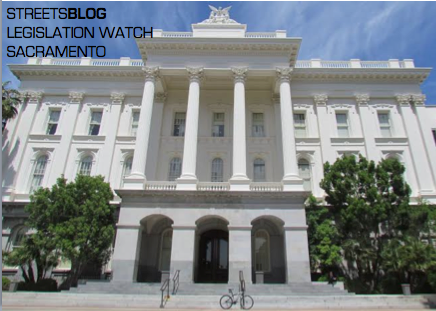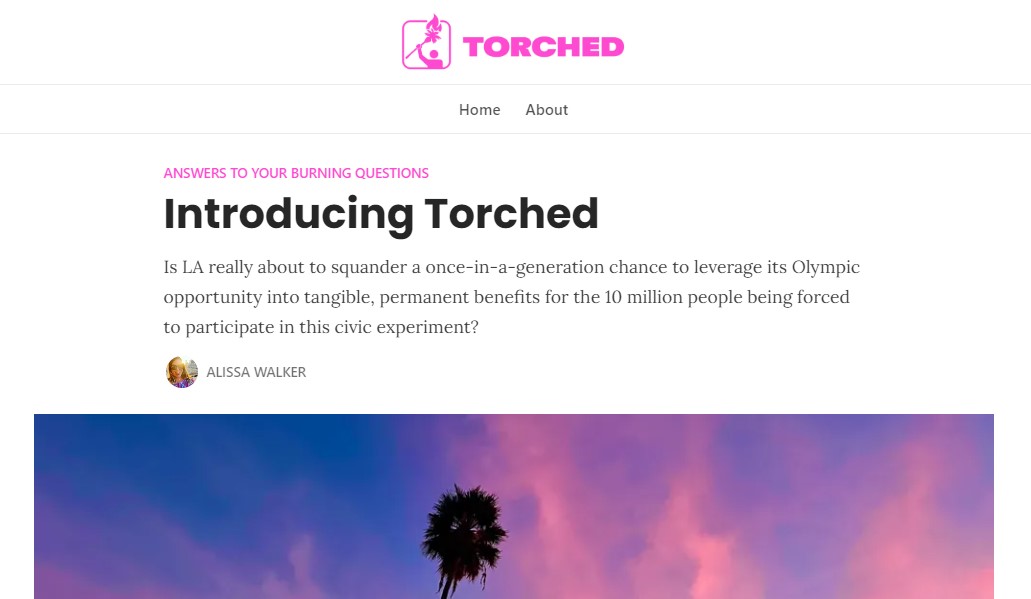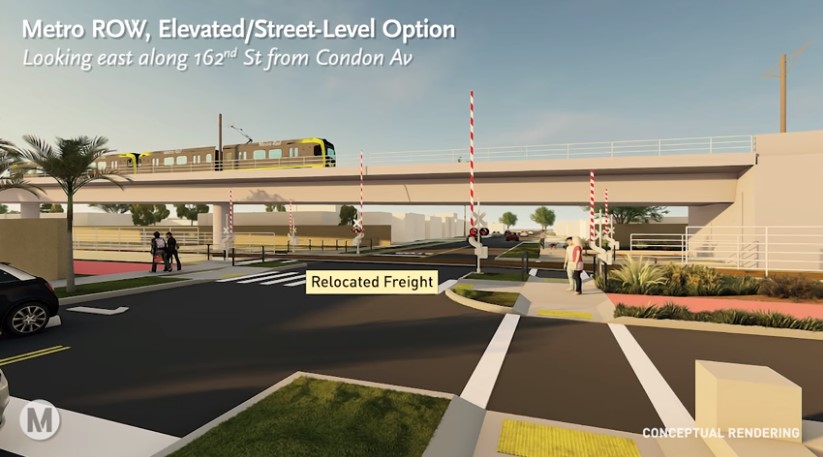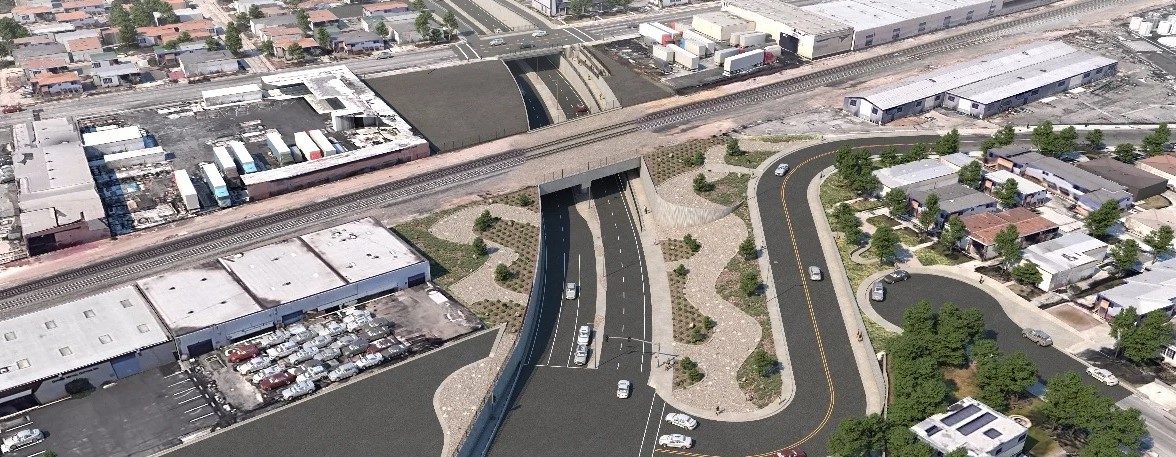California Legislation Watch: Weekly Update
3:42 PM PDT on May 30, 2014
The California Legislature saw a lot of action in the last two weeks on bills related to sustainable transportation. The deadline to pass bills out of committee was on the Friday before Memorial Day weekend, and today is the deadline for all bills to be voted on by their houses of origin. If they couldn't pass by today from the Senate to the Assembly, or vice versa, then they died for this session.
Below are the fates of some of the bills Streetsblog has been following. There are a few other relevant bills that don't appear here because they have already passed from their house of origin, including S.B. 1151, which would raise fines for traffic violations in school zones, and A.B. 1193, which would require Caltrans to institute standards for protected bike lanes.
A driver's license is still more important than the safety of bicycle riders and pedestrians: A.B. 2398, Marc Levine's (D-San Rafael) Vulnerable User Law, passed out of the Assembly Appropriations Committee last week, but not before it was amended to delete the automatic driver's license suspension it originally called for. As it's written now, the bill would raise fines and add a point against a driver's record if the driver is convicted of causing bodily injury to a vulnerable road user, including bicyclists and pedestrians. The bill passed the Assembly 72-2.
At least they'll have to stop: A.B. 1532 from Mike Gatto (D-Los Angeles) also passed the Assembly, on a 74-4 vote. This bill would suspend the license of a driver convicted of leaving the scene of a crash where any person is struck, whether that person is injured or not. “Victims and families deserve to know that cowards who drive recklessly, and purposefully avoid responsibility, can no longer drive the streets,” said Gatto in a press release. “AB 1532 is a sensible fix to the law that will lead people to think twice before leaving the scene of an accident.”
Developing a mileage-based user fee to pay for roads: S.B. 1077 from Mark DeSaulnier (D-Concord) would require CalSTA, the California State Transportation Agency, to develop a replacement for the gas tax by finding a way to charge road users based on how many miles a vehicle is driven. The aim is for a “price signal” to encourage people to drive less, thus reducing emissions and traffic congestion. Plus, a mileage-based fee would be a more stable source of funds than the gas tax, which is dwindling due to increasingly fuel-efficient cars, electric vehicles, and politicians' unwillingness to use the word "tax." The bill passed the Senate on a mostly party line vote (23-11) and now goes to the Assembly.
Funding bike paths with a vehicle registration fee: S.B. 1183, also from Mark DeSaulnier (D-Concord), passed the Senate 26 to 9. This bill started out as a sales tax on bicycles to fund bike path maintenance, but opposition to a new tax, and the complexities of managing it, caused the authors to re-think their approach. As it's written now, the bill would allow local jurisdictions — cities, counties, and park districts — to put a vehicle registration fee increase of $5 or less to pay for bike path maintenance on the ballot. Local voters would have to approve the fee by a two-thirds vote.
Replacing old polluting vehicles with a range of options: S.B. 1275, from Kevin De Leon (D-Los Angeles), would expand options under the state's compensation program intended to create an incentive for owners to ditch heavily-polluting vehicles. The bill would increase compensation for low-income program participants, and provide the option to use the incentive for a transit pass or car-share membership rather than spending it to buy another vehicle. The bill passed the Senate on a 27-to-9 vote.
Fracking ban fails to pass: S.B. 1132 from Holly Mitchell (D-Los Angeles) failed to pass the Senate despite strong support and a long list of sponsors. The vote was 16 to 16. This bill, Mitchell's second attempt, would have banned “well stimulation” activities until studies on the public health and environmental impacts of the oil extraction techniques are completed. “When the impacts on the public of a for-profit endeavor are unknown, we try it out first in minority neighborhoods – assuming low vigilance and the need to bring in jobs makes safety irrelevant,” Mitchell wrote on her website. “But we've put big industry on notice: That ploy won’t fly forever. People’s neighborhoods aren't fodder for fracking, environmental justice must come, and one day soon the vote to refrain from polluting for profit will prevail!”
For social media coverage focused on state-wide issues, follow Melanie @currymel on Twitter or like our Facebook page here. Email tips, alerts, press releases, ideas, etc. to melanie@streetsblog.org.
Stay in touch
Sign up for our free newsletter
More from Streetsblog Los Angeles
Automated Enforcement Coming Soon to a Bus Lane Near You
Metro is already installing on-bus cameras. Soon comes testing, outreach, then warning tickets. Wilshire/5th/6th and La Brea will be the first bus routes in the bus lane enforcement program.
Metro Looks to Approve Torrance C Line Extension Alignment
Selecting the relatively low-cost hybrid alternative should help the oft-delayed South Bay C Line extension move a step closer to reality





